school advocacy
It’s time to get clear on a language strategy for your child so that you can consistently practice language in your home and watch your child’s communication soar in less time!
Welcome!
Language Coach for Parents of kdis with hearing loss
I want to show you how to build better language skills at home so you can also parent with clarity and confidence!
Categories
hearing loss
sensory activities
sign language
1:1 Language Coaching
These are the kinds of resources that you will find on my blog!
Happy reading!
Hearing SEnsory Activities for Babies
July 25, 2023
Hearing sensory activities play a crucial role in the developmental stages of babies. These activities not only stimulate their auditory senses but also strengthen their cognitive, social, and emotional growth. These activities fit in perfectly as an easy sensory activity for babies 6-12 months.
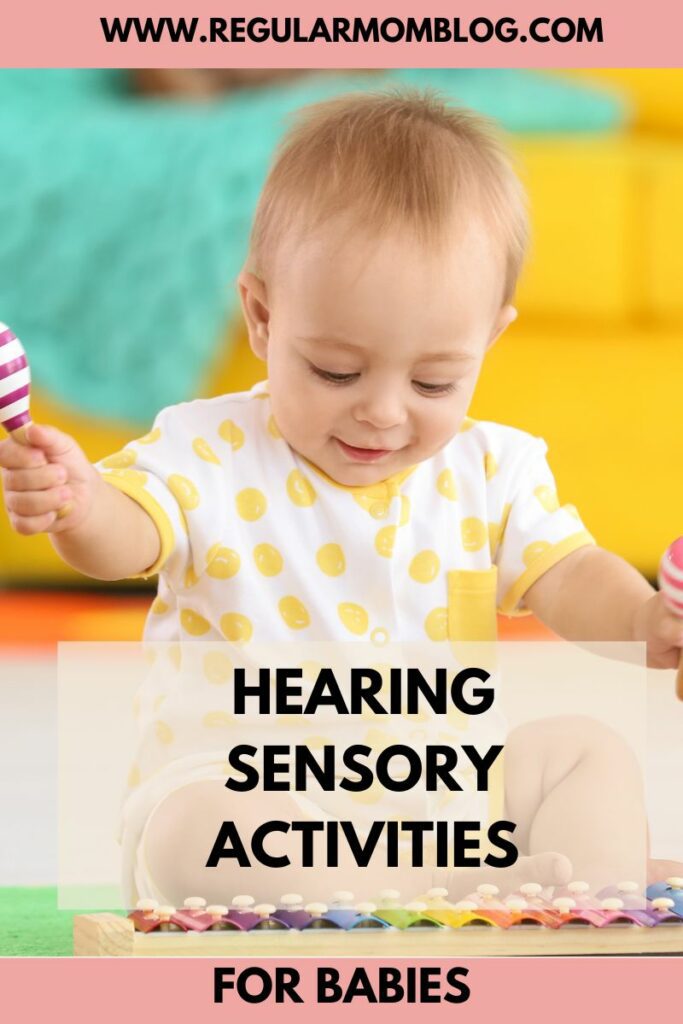
From musical playtime to exploring natural sounds, there are numerous ways to engage babies in hearing sensory activities.
By incorporating these activities in their daily routines, parents can help their little ones develop important listening and language skills that will benefit them throughout their lives.
In this article, we will dive deeper into the significance of hearing sensory activities and explore various ways to incorporate them into babies’ daily lives. So, let’s get started!
Hearing SEnsory Activities
Musical playtime
Musical playtime is the perfect way to get babies engaged with listening practice while having heaps of fun.
All kids love making noise! Using instruments like bells, shakers, and drums creates an exciting soundscape for them to explore and experiment within.
Engage your little one in hearing sensory activities during playtime, and you’ll find yourself tapping your toes and grooving along in no time!
Nature watch
Getting your baby acquainted with the great outdoors early on is a great way to stimulate their senses and create memorable moments.
Nature walks especially can help expose your little one to the sounds of animals and birds that they might not hear elsewhere.
Pointing out these sounds helps build their hearing awareness, which can improve their retention and recognition of different sounds over time.
Picking up natural objects like rocks and leaves also adds a fun twist to your walks, since some of these items create sounds when rubbed.
It’s an easy and low-key activity that you and your baby can enjoy together while learning more about the world around you.
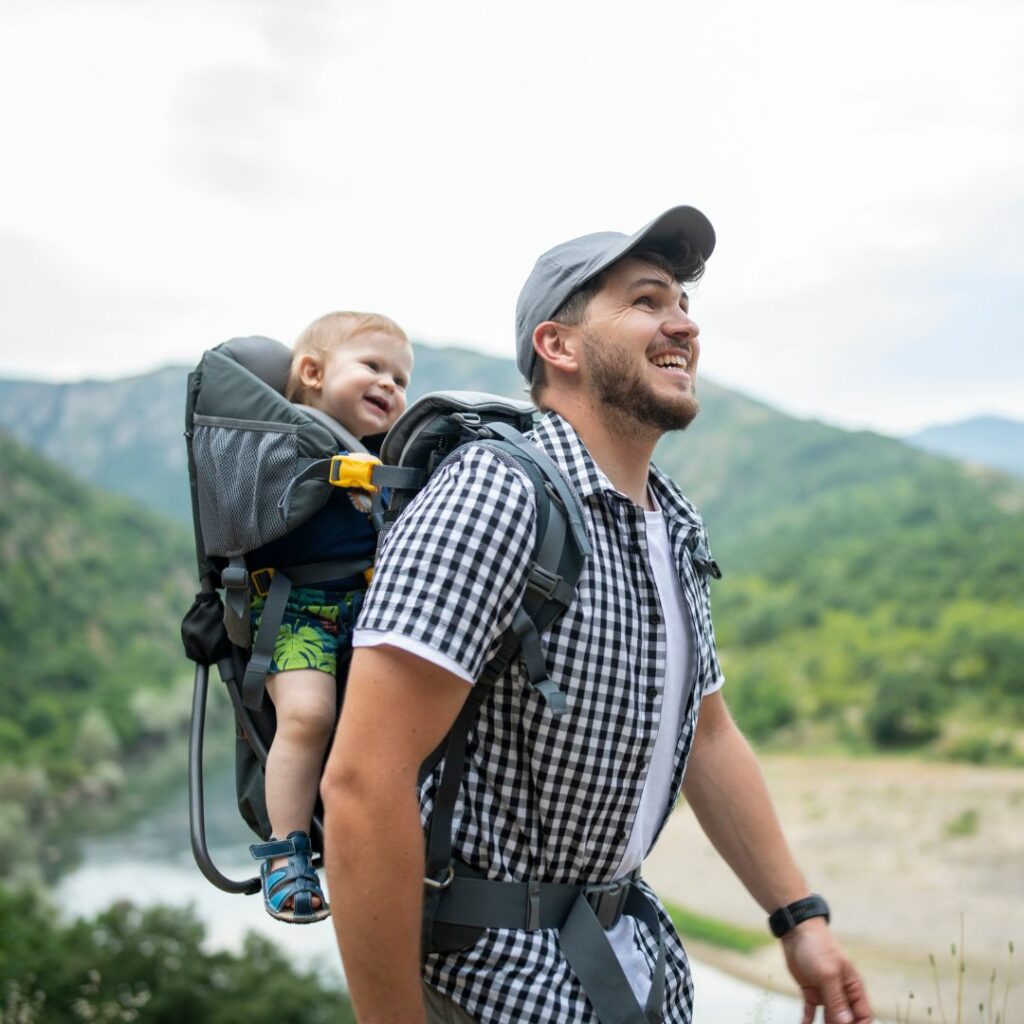
Nursery rhymes and stories
Babies have an incredible capacity for learning, especially when it comes to their listening skills.
That’s why nursery rhymes and stories can be such a fantastic tool!
When caregivers read aloud, their tone of voice and cadence can captivate babies’ attention and promote active listening.
Encouraging participation by making sounds and mimicking actions can be a great way to get babies involved too.
It’s never too early to start cultivating a love of books and language in your little one!
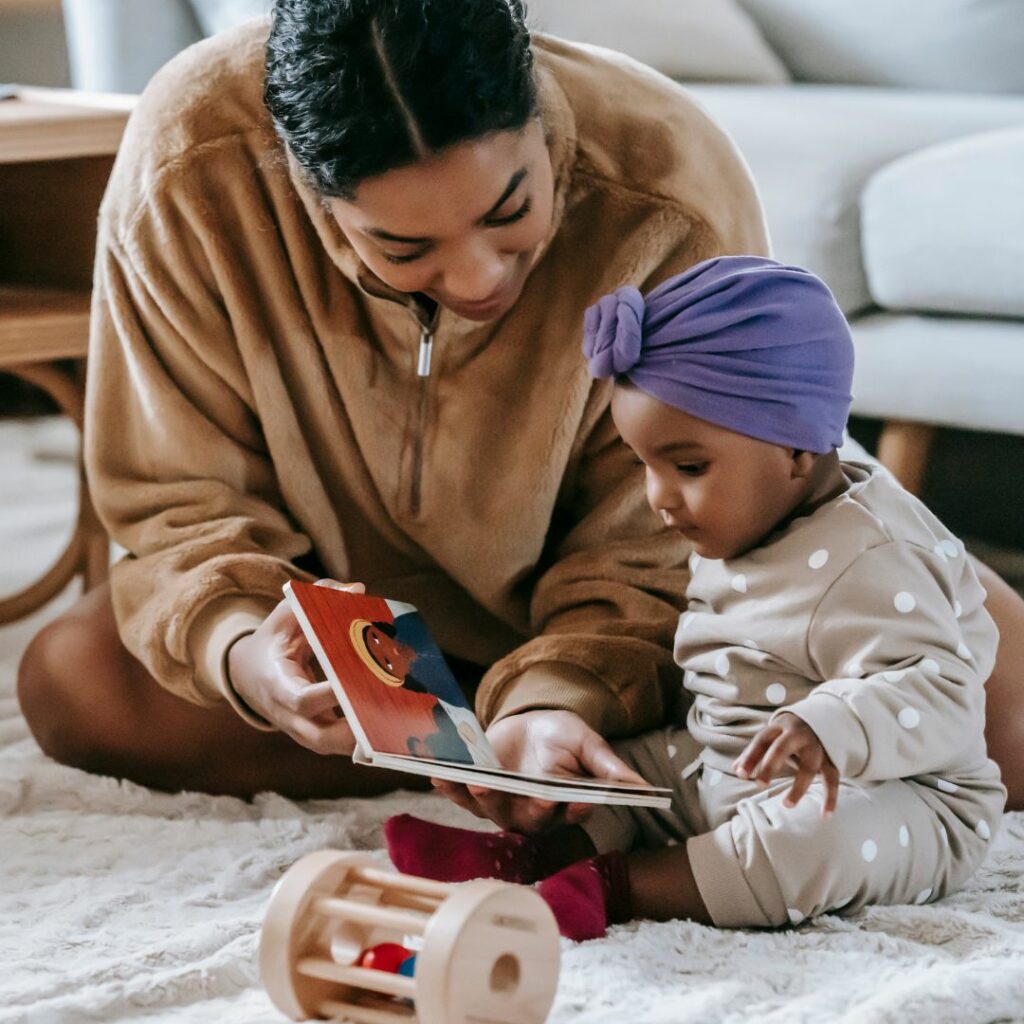
Sound Exploration
There are so many fun and engaging sensory activities to strengthen your baby’s hearing sense. For example, you can provide safe, sound-producing toys for them to make noise with.
You an even use common items around the house, like different size pots and pans for baby to bang on!
Everyday sounds can also be incorporated into their playtime, like the sound of running water or a vacuum cleaner.
Not only is sound exploration a great way to strengthen their hearing skills, but it can also be a fun bonding experience for parents and little ones!
EAsy Activities to do at home
Here is a list of hearing activities suitable for babies in the age range of 0-12 months.
These activities are designed to promote listening skills, sound recognition, and the ability to identify direction, pitch, and volume of sounds.
They are engaging, interactive, and help develop your baby’s hearing senses in a fun and exciting way:
- Musical Mobile: Hang a musical mobile above your baby’s crib or play area. The gentle melodies and rotating toys will capture their attention and stimulate their hearing senses.
- Rattle Play: Provide your baby with different baby rattles and encourage them to shake them. This helps them explore cause and effect as they hear the sound produced by their actions.
- Singing and Rhymes: Sing lullabies, nursery rhymes, and simple songs to your baby. Use hand gestures or gentle movements to make the experience more engaging. Your baby will enjoy the rhythm, melodies, and your voice.
- Sound Exploration Box: Create a box filled with various objects that produce different sounds, such as shaker bells, crinkly toys, and musical instruments. Allow your baby to explore the items and listen to the sounds they make.
- Sound Hunt: Take your baby for a walk outdoors or around the house and point out different sounds, such as birds chirping, a doorbell ringing, or a car passing by. Encourage your baby to listen and turn their head in the direction of the sound.
6. Sensory Bottles: Fill clear plastic bottles with materials like rice, beans, or small bells. Secure the lids tightly and let your baby shake and listen to the different sounds produced.
7. Mirror Play with Sound Effects: Sit with your baby in front of a mirror and make different sound effects, such as clapping your hands, tapping a spoon, or blowing kisses. Encourage your baby to observe your mouth movements and listen to the sounds.
8. Musical Instruments Exploration: Introduce your baby to child-friendly musical instruments like a mini piano, xylophone, or drum. Demonstrate how to produce sounds and let your baby explore the instruments themselves.
9. Dance Party: Play upbeat music and dance with your baby. Hold them in your arms or use a baby carrier while moving to the rhythm. This activity helps your baby associate sound with movement and encourages their listening skills.
10. Storytime with Sound Effects: Choose interactive books that include sound effects or use props to create sound effects while reading to your baby. This enhances their listening experience and makes storytime more engaging.
Remember, always supervise your baby during these activities and ensure that any toys or objects used are safe and age-appropriate. Enjoy exploring and developing your baby’s hearing senses together!
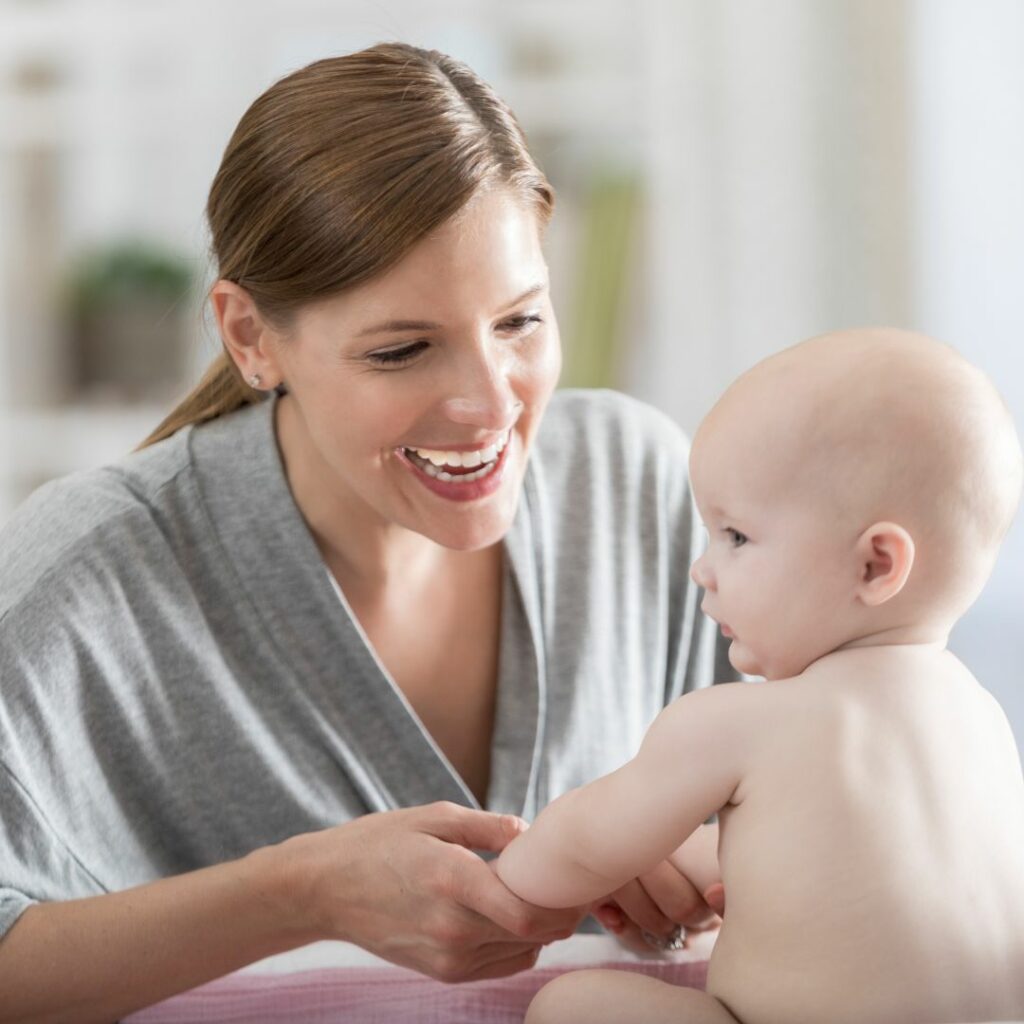
Hearing sensory activities are vital for the holistic development of babies. These activities have a profound impact on their cognitive and language skills.
Engaging babies with musical playtime, organizing nature walks, nursery rhymes and sound explorations help in the stimulation and introduction of various sounds.
These sensory activities also offer a bonding opportunity between babies and parents and help create a sense of security.
As parents and caregivers, incorporating hearing sensory activities in daily routines is an effective way to promote babies’ overall growth and development.
Which sensory activity are your going to try first? Let me know in the comments!
Don’t forget to download your free Sensory Play Guide!
More Resources For SEnsory Activities
Sensory Music Activities for Babies
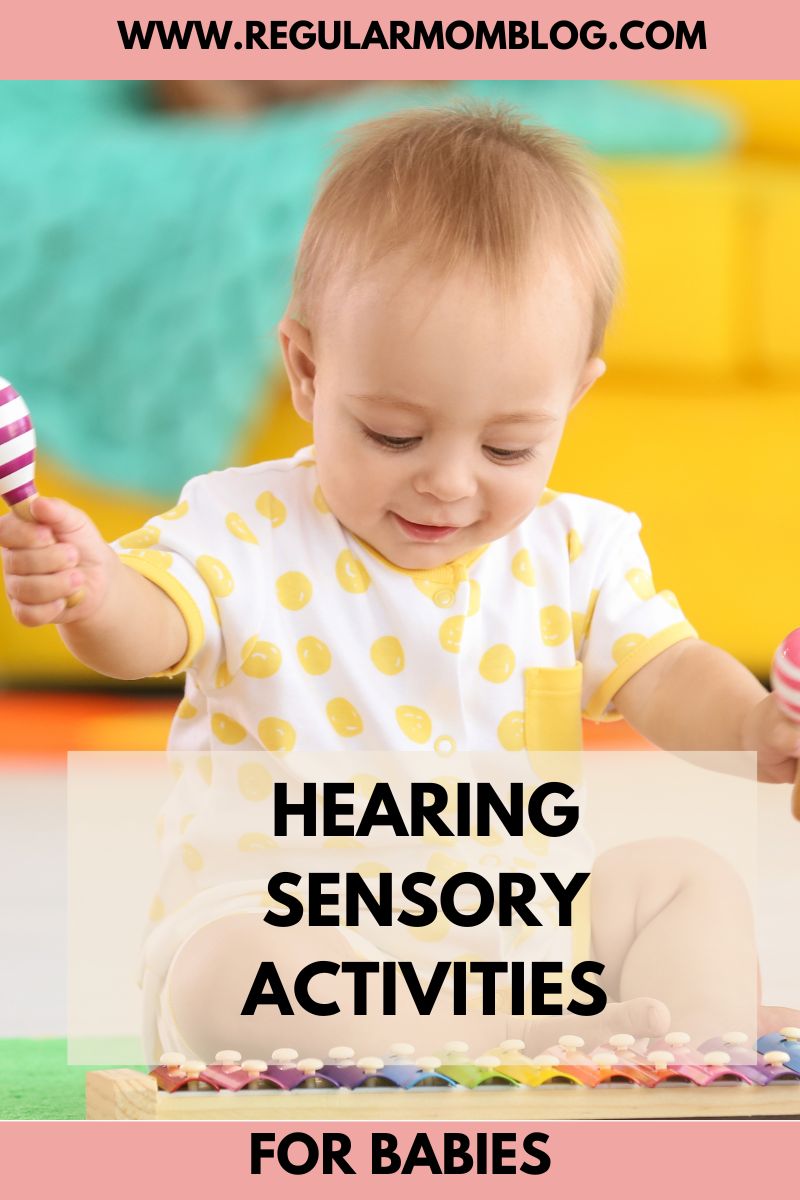
tell me more!
tell me more!
@alemerinobranding.co
DESIGNED BY: ALE MERINO BRANDING CO.
COACHING
Navigation
PODCAST
ABOUT
HOME
Legal
PRIVACY POLICY
TERMS & CONDITIONS
Let's connect
EMAIL hello@raisingdeafkids.com
BLOG
